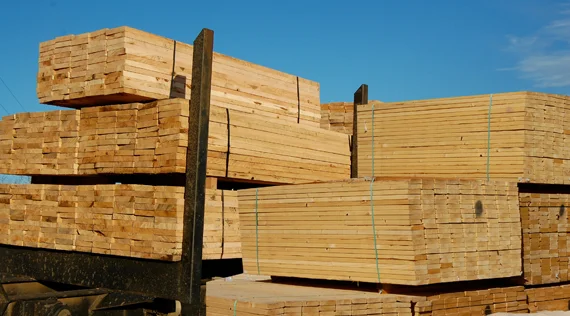
VANCOUVER (Scrap Monster): B.C Premier Christy Clarke has stated that the US President Donald Trump’s vision to rebuild America may augur well for the province’s softwood lumber industry. The announcement has come in the midst of fears that investigations launched against Canadian lumber imports may result in hefty duties for Canadian softwood lumber exporters. It must be noted that the US is a key market for B.C’s Forestry sector, accounting for 70% of its wood products exports.
While attending a breakfast event in West Kelowna City, she noted that residential housing starts are a major contributor of US economic growth. Incidentally, US housing industry growth is nearly impossible without imported Canadian lumber products. Since domestic lumber production in the US will not be adequate to meet the demand from housing sector, the void must have to be filled with imported lumber. For the US, lumber imports from Canada offers better economical benefits than lumber imported from other countries. In short, a ray of hope still exists for the softwood lumber industry, Clarke noted.
Clarke announced that the provincial government has decided to organize a huge campaign to make American middle class population realize the importance of Canadian lumber in their path to economic prosperity. However, she refused to disclose the details of the project including its cost of implementation.
In agreement with Clarke’s view, Nick Arkle, CEO, Gorman Bros. Lumber Limited stated that Canadian lumber is critically important to the US. In his view, the current situation could be read as a fight between American’s desire to hurt Canadian lumber and their need for lumber. According to Arkle, Canadian lumber producers may be forced to find new markets in the event of imposition of trade tariffs on their lumber products by the US administration. He cited that his company’s exports to the US has declined sharply from 80-85% in early 2000’s to as low as 30% in 2016. Meantime, Arkle commended the hard work and efforts made by the provincial government towards renewed softwood lumber deal with the US.
Meantime, industry believes that easy trade with the US is equally critical for Canadian lumber producers, mainly because exports to other key importing nations including China offers several limitations. First and foremost are the logistical issues involved in trade with these distant countries. Secondly, slowdown in Chinese economy is feared to reduce lumber demand in that country. Moreover, the increased exports of softwood lumber by Russia into China makes it difficult for B.C exporters to expand their market share.
The lumber trade dispute between the two countries is dated back to 1982. The two countries had signed a bilateral agreement in September 2006. The original seven-year agreement had an optional provision to extend for a period of two years upon consensus by both parties. Accordingly, the deal which came to an end in 2013 was extended until 2015. As per the terms of the deal, parties were prohibited from engaging in trade actions for one-year grace period, which has already come to an end on 12th October, 2016.
| Copper Scrap View All | |
| Alternator | 0.31 (0) |
| #1 Copper Bare Bright | 3.65 (0.02) |
| Aluminum Scrap View All | |
| 356 Aluminum Wheels (Clean) | 0.71 (-0.01) |
| 6061 Extrusions | 0.62 (-0.01) |
| Steel Scrap View All | |
| #1 Bundle | 475.00 (0) |
| #1 Busheling | 495.00 (0) |
| Electronics Scrap View All | |